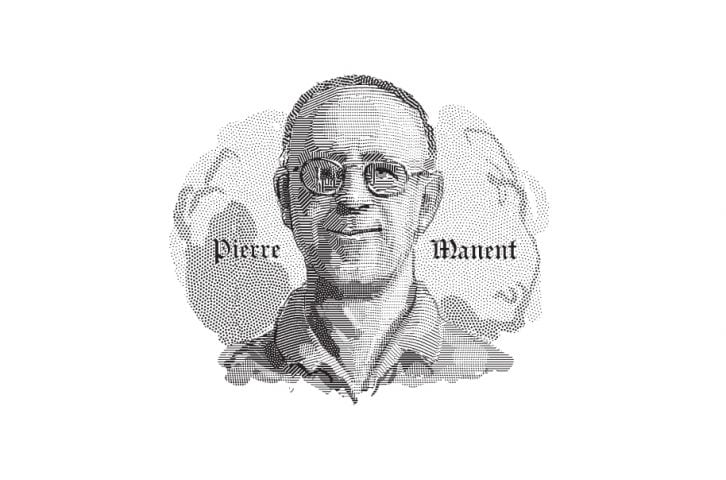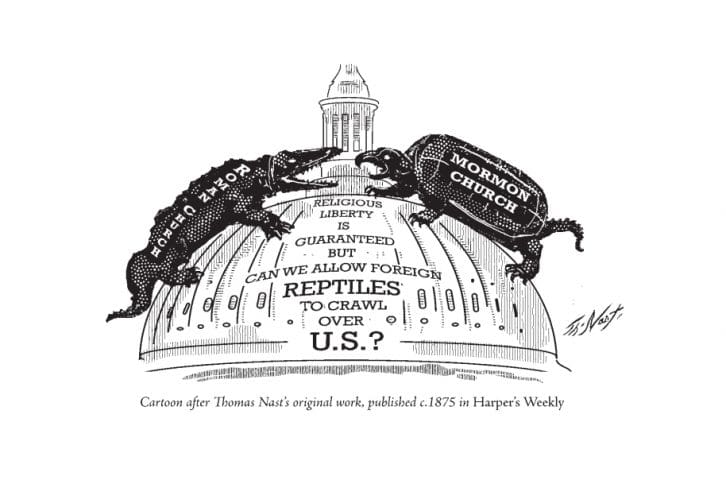Who Really Cares: America’s Charity Divide-Who Gives, Who Doesn’t, and Why it Matters by Arthur C. Brooks.
With a charming mix of gentle humor and hard data, Arthur Brooks’s fine new book attacks what the author calls “one of the greatest political hypocrisies of our time,” namely, “the pious sloganeering about liberals in America being more compassionate than conservatives.” Brooks, a Syracuse University professor of public administration, demonstrates that not just religious people but religiousconservatives give far more of their time, talent, and treasure than do their secular and liberal neighbors. But Who Really Cares is not about politics, at least in the conventional sense. Brooks never advocates a cause, party, or policy, though he does criticize government disincentives to charitable giving. He also highlights charitable organizations (like New York’s Common Cents) that encourage personal responsibility and emphasize the enormous benefits that giving brings…to givers. The book’s main accomplishment is to show that America is a land of charity in ways that extend beyond bureaucratic programs—ways drawn from culture and especially religion. In the face of the scientific, strategic, and even venture philanthropists who disparage charity for relying on individuals instead of administrative “experts,” Brooks elevates charity back to its place of honor, not as something to beg for or be embarrassed by, but as a virtue, one that requires cultivation to survive.
—Albert Keith Whitaker
Boston College Center on Wealth and Philanthropy
* * *
Wonderlust: Ruminations on Liberal Education by Michael Davis.
This is the instructive and even edifying saga of a typically atypical American boy: born mid-20th century to Communist parents, almost in a log cabin almost in Troy; growing up catching frogs, playing baseball, and reading Jack London and Charles Dickens; conceiving an aspiration to be either a president or a physicist-either one, because they both “somehow dealt with everything.” Then his life plans were derailed by three students of Leo Strauss: Allan Bloom at Cornell who attracted him to wonder; Richard Kennington from Penn State who showed him wonder in action; and Seth Benardete, who engaged him in 22 years of wonderful conversation, which in its own unexpected and astonishing way somehow dealt with everything.
True, it’s not strictly speaking a saga. It’s a collection of seventeen lectures, presentations, or memorials, from the past 30 years, during which Michael Davis, while teaching philosophy at Sarah Lawrence College, has on various pretexts and occasions been invited, obliged, or inspired to hold forth outside the classroom. His formal topics range from Aeschylus and Plato to Leo Strauss and Saul Bellow, with Shakespeare, Rousseau, Nietzsche, and the like (is that possible!) in between. These are, as advertised, ruminations—not discourses or treatises or chapters—and Davis invites the reader to consider the character and virtues of the genre. The shortest is a few pages, the longest (on Strauss) about 25 pages. Each rumination does have liberal education in the neighborhood and wonderlust, or the love of awakening to the love of wisdom, in the front yard. And books, or rather great works, usually of the written word, are everywhere-cherished by the painstakingly close study of them, because they have the greatest things to teach us.
—Christopher Flannery
* * *
The Regensburg Lecture by James V. Schall
This slim volume reprints two expanded essays by Georgetown government professor Fr. James Schall languidly reflecting on Pope Benedict XVI’s headline-making lecture from last fall (also included). As a bonus, the book adds an essay by Schall on the term “Islamo-fascism.”
In the setting of a university, a place designed for inquiry without fear of reprisal, the pontiff asked the world: is God reasonable? If He is reasonable (or reason itself, as John the Evangelist wrote), then we can employ what we know by reason to know something about God and what he commands. For example, Benedict said, because we can know terrorism is evil, we know it cannot be commanded by the true God. Nevertheless, many Muslims have taught and continue to teach that Allah is pure chaotic will, able to be anything or to command anything no matter what the contradiction.
The pope laments that the contemporary West has rejected the Christian tradition, which teaches a harmony between Greek philosophy and biblical faith, and adopted instead modernity’s narrowly conceived science, which is unable to inquire into the highest and most important questions of how to live well. Without engaging these questions, we cannot refute challenges to the good life either at home or abroad. And yet, those who reject reason still must give an account of themselves, writes Schall, which is itself an appeal to reason.
—John B. Kienker
* * *
Perspectives on Politics in Shakespeare edited by John A. Murley and Sean D. Sutton.
This is an impressive collection by some of the most gifted political thinkers writing on Shakespeare today. After chapters by Paul Cantor and John Alvis on the English history plays (with special attention to Henry V), and David Nichols on the comedies, the volume offers close readings of particular plays, with Mera Flaumenhaft on As You Like It, Pamela Jensen onMeasure for Measure , and Leo Paul de Alvarez on Troilus and Cressida. The final essay is a three-part rumination by George Anastaplo on the ways in which Shakespeare used English history, and the ways in which three readers—Elizabeth I, Abraham Lincoln, and John Wilkes Booth-used (or misused) the plays.
The collection is unified by two themes: the political challenges and possibilities posed by modernity, and the significance of Christianity. Cantor, Nichols, Jensen, and de Alvarez explore how Shakespeare’s political thought was influenced by, and responded to, Machiavelli’s; Alvis, Flaumenhaft, and Anastaplo raise similar questions indirectly. Although the scholars disagree about the extent of Machiavelli’s influence, they agree that Shakespeare ultimately parted ways with him-especially in regard to the pursuit of justice and the institution of marriage—due largely to the Bard’s more favorable assessment of Christianity.
—Germaine Paulo Walsh
Texas Lutheran University


